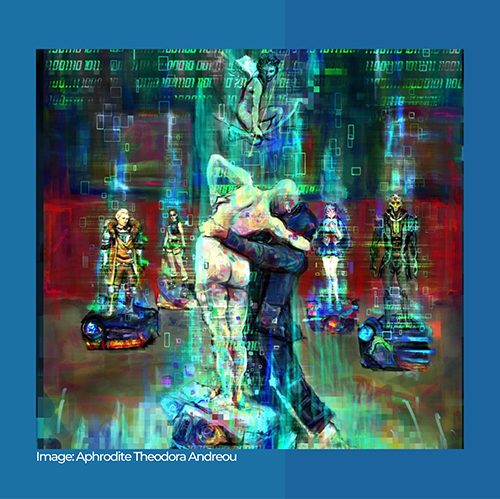
IJGSI | Call for Papers - Vol. 2 No. 2
Programmed to Love: Players and Virtual Lovers
Guest Editor: Renata Ntelia (School of Computer Science, University of Lincoln)
Games often offer their players strong emotional experiences. Love is a profound human experience that affects all aspects of our lives. Indeed, many games include love as part of their narrative and/or gameplay. Nevertheless, is this truly love? Unlike other media, in which the audience reads about or watches a love story unfold, in games players take on an active role in the execution of the love story.
This raises concerns as to the ability of games to simulate love. Can a player love a (virtual) character? If not, what does this mean for the capacity of games to afford love? If yes, how does this change our understanding of love? Game Studies have approached the concept of love from multiple perspectives: philosophical inquiries (Leino 2015, Dicken 2018), game design challenges (Grace 2020), feminist and queer analyses (Salter 2020, Youngblood 2015), and sociological studies (Burgess and Jones 2020, Bopp et al. 2019, Karhulahti and Välisalo 2021). Yet, despite the multitude and resonance of the existing scholarship, love in games remains an underexplored and fascinating topic that interests both game players and creators alike.
For this issue of IJGSI, we are accepting full papers that are related, not exclusively, to one or more of the following aspects:
- Meaning of love in games
- Love relationships between human players and NPCs
- Representation and poetics of love in games
- Queer and feminist approaches to game love
- Close reading of games featuring love
- Love as a mechanics and design challenge
- History of love in games
- Games as spaces for humans to fall in love
- Roleplaying and love in games
- We welcome submissions relating to any type of game: digital, online, VR, tabletop, board games, LARP, etc.
Full papers must be submitted electronically after registering on the platform, respecting the guidelines established in the Submissions section.
The submission deadline is the 1st of June 2024.
More information HERE.








